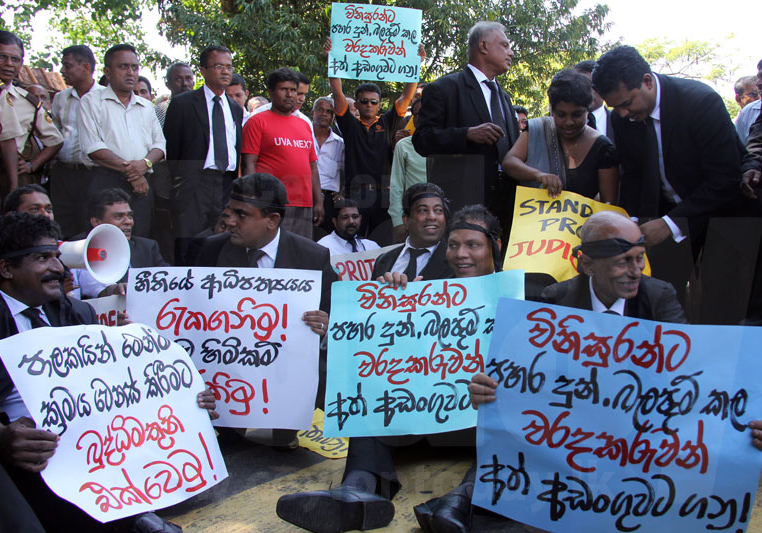
Mar 30, 2017
Sri Lanka’s criminal justice system must undergo serious reform in line with international human rights standards in order to provide justice for victims of human rights abuses, the ICJ said in a discussion paper released today.
In a discussion paper titled Challenges to Accountability for Human Rights Violations in Sri Lanka: A Synopsis of Findings from a Meeting with Lawyers and Human Rights Defenders in Colombo, November 2016, the ICJ has identified priorities for action raised by Sri Lankan lawyers and human rights defenders during a workshop on accountability for human rights violations and abuses held in Colombo, Sri Lanka, in November 2016.
“After decades of undue political interference with judicial institutions by authoritarian regimes, the Sri Lankan criminal justice system as a whole has been weakened and is simply not equipped with the capacity or will to adequately pursue accountability for gross human rights cases,” said Nikhil Narayan, South Asia Senior International Legal Adviser for the ICJ.
“It is crucial that Sri Lanka embarks on real systemic reform of the criminal justice system, both legal and administrative, to strengthen its ability to deal with human rights violations and reverse the deteriorating public faith and credibility in the justice sector,” he added.
The issues raised by participants during the workshop in November 2016 echoed many of those identified in the ICJ’s prior studies, reflecting the ongoing and unaddressed systemic challenges that practitioners continue to face today, despite the change of government and perception that the adjudication of human rights cases is seamless.
This discussion paper highlights several key concerns raised by the participants, all of whom are human rights lawyers and defenders. These include:
- the public’s lack of faith in the criminal justice system anchored to the lack of will and ability to investigate, prosecute, and adjudicate human rights violations;
- the gaps in the legal framework to address serious human rights violations;
- questions as to the independence of State actors involved in the judicial system;
- undue delays in pending cases, the lack of functional independence and impartiality of the Attorney General’s Office; and,
- the poor processes and non-transparency in recent legal reform initiatives.
“Our workshop provided a stark reminder that, despite the end of the war nearly a decade ago, the same structural deficiencies in the criminal justice system that existed during the conflict continue to obstruct real justice and accountability for human rights abuses, both conflict-era and ongoing,” Narayan said.
“Particularly now, at a time when the Sri Lankan State at all levels is trying to convince both the domestic and international audience that the existing criminal justice system is sufficiently capable of adjudicating cases of gross human rights abuses stemming from the conflict as part of the transitional justice process, human rights lawyers and defenders in Sri Lanka have issued a counter-point to these claims,” he added.
The discussion paper concludes with the identification and prioritization of key strategies for criminal justice reform that could help address these challenges, including:
- Clarifying the role of the Attorney General’s Office, including strengthening its functional independence and impartiality;
- Strengthening the independence and impartiality of the judiciary;
- Strengthening the functional independence of the police;
- Incorporating gross human rights violations amounting to crimes under international law as specific offences in Sri Lankan law in line with international standards;
- Strengthening the functional independence and impartiality of independent constitutional commissions such as the Human Rights Commission of Sri Lanka and the National Police Commission, among others;
- Encouraging and supporting the Bar Association of Sri Lanka in taking a stronger public advocacy role on human rights and rule of law; and,
- Greater public awareness-raising of law reform initiatives.
Contact
Nikhil Narayan, South Asia Senior International Legal Adviser, e: Nikhil.narayan(a)icj.org
Background
The November 2016 workshop was the first of two colloquia to discuss ongoing challenges faced in promoting greater accountability for human rights violations and abuses through the Sri Lankan criminal justice system.
The second colloquium was held with Sri Lankan high court judges in Colombo in January 2017. The outcome of the judges’ colloquium will be published in a discussion paper next month.
The ICJ has previously published several reports, including in 2010 and 2012, documenting the deep politicization and capacity deficit of the Sri Lankan judiciary and criminal justice system in dealing with gross human rights violations and abuses.
Sri Lanka-FCO Accountability 1-Advocacy-Analysis brief-2017-ENG (full paper in PDF)
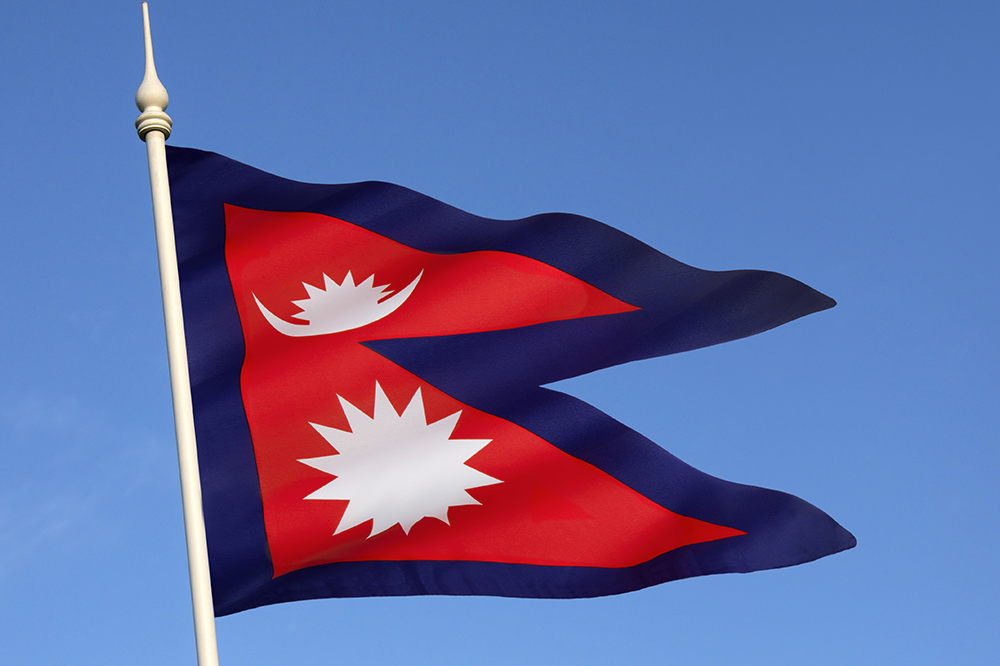
Mar 29, 2017
Nepal’s draft Criminal Code Bill must be revised in line with international human rights standards in order to ensure justice for victims of serious human rights violations, the ICJ said in a briefing paper released today.
The ICJ is calling on Nepal’s Parliament to make significant changes to the draft before it adopts this important legislation.
In its briefing paper Serious Crimes in Nepal’s Criminal Code Bill, 2014 the ICJ has evaluated the Criminal Code Bill, 2014, which aims to update Nepal’s criminal law and codify new crimes.
The ICJ has concluded that a number of provisions of the Bill are not in accordance with Nepal’s international obligations.
“While the Criminal Code Bill makes a nod towards addressing impunity for gross human rights violations, the draft law falls well short of what Nepal needs to do to hold abusers accountable for the most serious crimes”, said Nikhil Narayan, South Asia Senior International Legal Adviser for the ICJ. “For instance, the bill fails entirely to include war crimes, crimes against humanity and genocide.”
“It is crucial that Nepal revise the Criminal Code Bill in line with international standards in order to ensure justice and accountability for victims of these grave offences,” he added.
The briefing paper identifies several key shortcomings of the Bill, including an inadequate definition of the crime of enforced disappearance and the inappropriate inclusion of a statute of limitation for filing complaint of enforced disappearance, which would necessarily lead to impunity.
In respect of the crime of rape, there were numerous shortcomings as to the definition, discriminatory provisions on penalties for marital versus non-marital rape, inadequate provisions for reparation to rape victims and inappropriate limitations periods for filing complaints of rape.
The ICJ previously analyzed Nepal’s Torture and Cruel, Inhuman or Degrading Treatment (Control) Bill, 2014, criminalizing torture and other ill-treatment, and in that briefing paper too found several provisions of the soon-to-be-enacted anti-torture law to be inconsistent with Nepal’s international legal obligations.
The ICJ briefing paper on the Criminal Code Bill is released at a time when the Legislative Committee of the Legislature-Parliament has approved the draft Bill based on its sub-committee report and intends to table the Bill before the Parliament for debate and vote in the coming weeks.
“Many of the serious human rights abuses that systematically occurred during Nepal’s decade-long armed conflict have still not been criminalized under the country’s domestic law, denying justice to the many victims of that conflict,” Narayan said.
“This Criminal Code Bill is an opportunity for the Government of Nepal to demonstrate its commitment to ending the culture of impunity in the country by promulgating a strong law that ensures justice and accountability for serious crimes in line with its international human rights obligations,” he added.
In its briefing paper, the ICJ has made several recommendations for revision of the Criminal Code Bill, including:
- Amending the definition of enforced disappearances in line with Nepal’s international obligations and the Convention on the Protection of All Persons from Enforced Disappearance (CED);
- Revising the penalty provisions in the Criminal Code Bill to comply with relevant provisions of the CED and other international standards;
- Removing the statute of limitations for enforced disappearance cases;
- Amending the provisions on rape and sexual violence to ensure that they are gender neutral, and that both perpetrators and victims can be male, female, or “third-gender”, as defined by the Supreme Court of Nepal;
- Maintaining consistent penalties for both marital rape and non-marital rape;
- Revising the penalty for rape to reflect the seriousness of the crime and the long-lasting damage suffered by the victim, in line with international standards; and,
- Including provisions criminalizing genocide, crimes against humanity and war crimes, in line with international law and standards.
Contact
Nikhil Narayan, South Asia Senior International Legal Adviser, e: Nikhil.narayan(a)icj.org
Sam Zarifi, Asia-Pacific Regional Director, e: sam.zarifi(a)icj.org
Nepal-Serious Crimes Bill-Advocacy-Analysis Brief-2017-ENG (full paper, in PDF)
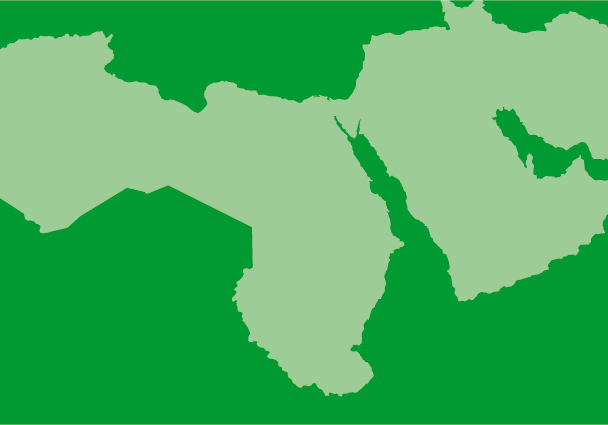
Feb 28, 2017
The ICJ today called on the Lebanese authorities to introduce comprehensive legal and policy reforms to ensure that the judiciary is fully independent, impartial and accountable.
Measures must be taken to ensure that the judiciary is not subject to any form of undue influence by political actors and confessional communities, and that it is able to fulfill its responsibility to uphold the rule of law and human rights, added the Geneva-based organization.
The statement came as the ICJ published three legal briefings analyzing aspects of the legal framework regulating the ordinary justice system, in particular Decree-Law No. 150/83 on the organization of the judiciary. The briefings formulate recommendations for amending the provisions relating to the High Judicial Council, the management of the career of judges, and judicial accountability.
“Decree-Law No. 150/83 does not guarantee judicial independence at the institutional and financial levels, nor does it adequately safeguard the independence of individual judges,” said Said Benarbia, ICJ Director of the Middle East and North Africa Programme.
“If anything, it allows for improper political influence over virtually every aspect of judges’ careers, including their selection and appointment, their transfer through arbitrary procedures, and their discipline, suspension and removal through unfair and opaque proceedings”, he added.
The assessment by the ICJ concludes that instead of acting as a check against improper political influence in judicial matters, the High Judicial Council itself is vulnerable to such influence. This is evident in the fact that the Minister of Justice is empowered to appoint eight of the Council’s ten members and sets the budget of the High Judicial Council and of the judiciary as a whole.
In its briefings, the ICJ called for:
- the majority of members of the High Judicial Council to be judges who are elected by their peers;
- the establishment of detailed and objective criteria for all elected and appointed candidates, including for the appointment of the President and the Public Prosecutor of the Court of Cassation; and
- the High Judicial Council to be given full control over its financial resources.
The ICJ also called for legal reforms to be introduced to reinforce the independence of individual judges. These are necessary to ensure that their selection, appointment, transfers and evaluations are based on transparent procedures and objective criteria, and that any disciplinary action against them is only pursuant to well-defined standards and respectful of all due process guarantees.
Under the current framework, the system for evaluating and promoting judges is opaque and open to cronyism and, in particular, to the undue influence of the executive and political actors. In addition, the Minister of Justice holds an outsize role in the process of selecting and appointing judges, and in initiating disciplinary proceedings against them, referring matters to the disciplinary council, and suspending judges pending a disciplinary decision.
“Ensuring that, once reformed and independent, the High Judicial Council is exclusively competent to manage all aspects of the careers of judges is a sine qua non condition not only to establish and uphold judicial independence, but also to restore the public faith and confidence in the integrity of the Lebanese justice system,” concluded Benarbia.
Contact
Said Benarbia, Director of the ICJ Middle East and North Africa Programme, t: +41 22 979 38 17: said.benarbia(a)icj.org.
Lebanon-judicial independence-News-Press release-2017-ARA (full story in Arabic, PDF)
Lebanon-Memo re HJC-Advocacy-Analysis Brief-2017-ENG (legal briefing on High Judicial Council, English, in PDF)
Lebanon-Memo re judges-Advocacy-Analysis Brief-2017-ENG (legal briefing on careers of judges, English, in PDF)
Lebanon-Memo re accountability-Advocacy-Analysis Brief-2017-ENG (legal briefing on judicial accountability, English, in PDF)
Lebanon-Memo re HJC-Advocacy-Analysis Brief-2017-ARA (legal briefing on High Judicial Council, Arabic, in PDF)
Lebanon-Memo re judges-Advocacy-Analysis Brief-2017-ARA (legal briefing on careers of judges, Arabic, in PDF)
Lebanon-Memo re accountability-Advocacy-Analysis Brief-2017-ARA (legal briefing on judicial accountability, Arabic, in PDF)
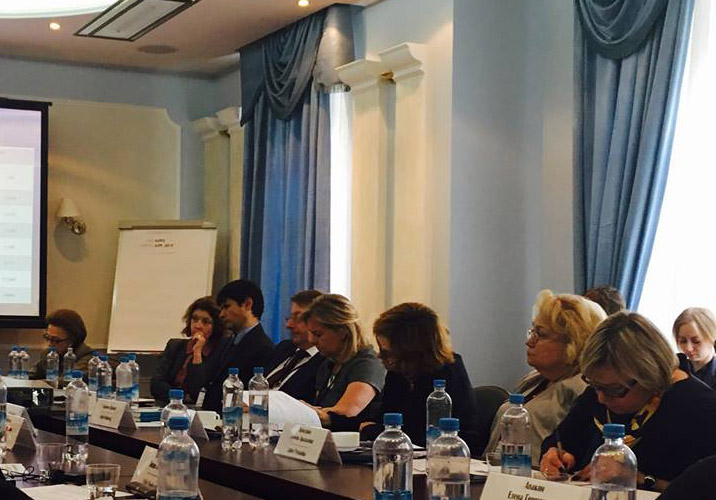
Jan 17, 2017
The paper aims to analyze relevant international law and standards applicable to the topics discussed at a recent round table, including assessment of the work of judges and its impact on judicial independence; assignment of cases; quality of judgments; and enforcement of judgments.
It sets out the international and European regional law and standards related to these key aspects of the internal functioning of the judiciary, which should serve as guidelines for policy makers and practitioners in the Russian Federation when assessing national legislation and practice in regard to these issues.
The paper also makes recommendations in light of the international law and standards analyzed, having particular regard to the challenges within the Russian judicial system, discussed at the round table.
On 26 September 2016, the ICJ, in cooperation with the Institute of Law and Public Policy (ILPP), held a round table discussion in Moscow on Independence, Efficiency and Quality of Justice.
ICJ international and Russian national experts, including judges from Russia, Norway, the Netherlands and Italy, discussed a range of issues related to the efficiency of the judiciary, the allocation of cases, the quality and enforcement of court decisions and related topics.
The meeting allowed Russian and foreign judges and lawyers to share their experiences and discuss key aspects of organization of the judiciary.
Participants at the seminar discussed the continuing low levels of public trust in the judiciary in the Russian Federation and the need for further reforms to ensure that the judiciary can discharge its role as a true guarantor of the rule of law and human rights.
Concerns exist not only in regard to the guarantees that directly relate to the fairness of court hearings, but also as regards the organization of the judiciary.
While these institutional aspects are less often addressed in individual cases, they are essential to uphold the right to a fair trial under Article 6 of the ECHR and Article 14 of the International Covenant on Civil and Political Rights (ICCPR) as well as other international standards on the independence of the judiciary and fairness of court proceedings.
Russia-International standards_Moscow RT-Advocacy-Analysis brief-2017-ENG (Briefing paper in English, PDF)
Russia-International standards_Moscow RT-Advocacy-Analysis brief-2017-RUS (Briefing paper in Russian, PDF)
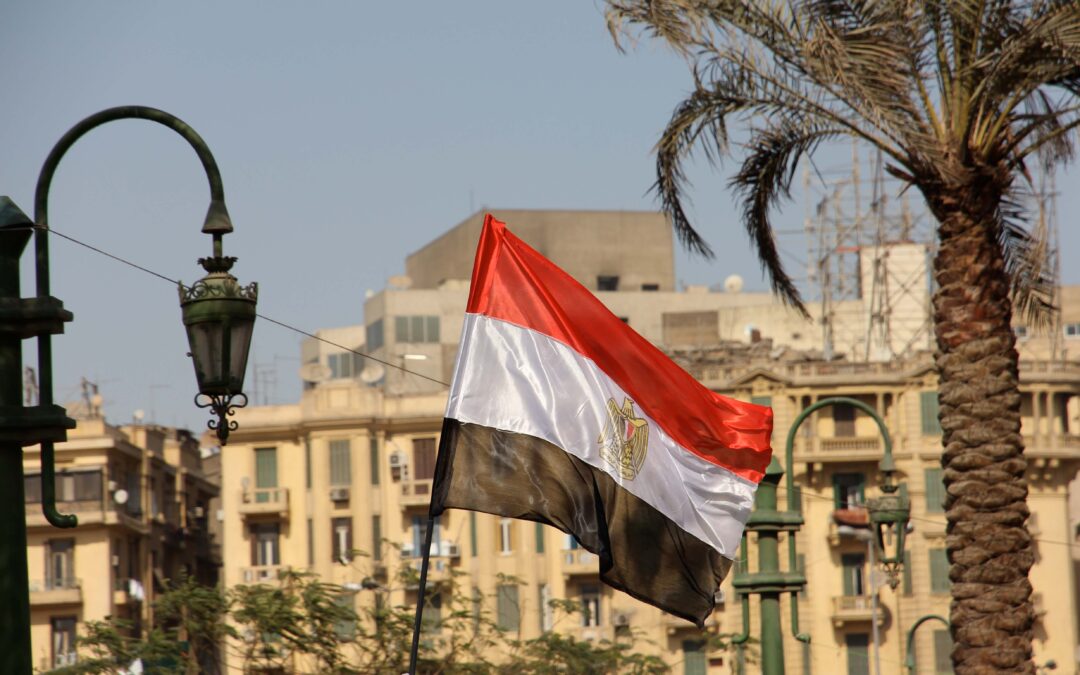
Jan 12, 2017
The ICJ today called on the Egyptian authorities to refrain from its attacks against independent judges and reinstate all those that have been removed from office following arbitrary and unfair disciplinary proceedings.
The call came as the ICJ released a legal briefing assessing the compliance of the mass disciplinary proceedings in the “the July 2013 Statement case” with international standards on judicial independence and due process.
Upholding a decision by the Disciplinary Board in the “July 2013 Statement case”, the Supreme Disciplinary Board found that 31 judges were “unfit” to hold judicial office for endorsing a public statement following the ousting of President Morsi and the seizure of power by the Military.
The Statement called for the 2012 Constitution to be restored, for a dialogue between all stakeholders to be established within the framework of constitutional legitimacy, and for the right to peaceful demonstration to be respected.
“The July 2013 Statement was a legitimate exercise, by the concerned judges, of their rights to freedom of expression, assembly and association,” said Saïd Benarbia, ICJ MENA Director.
“Removing these judges from office for exercising such rights and following mass, arbitrary, and unfair proceedings runs counter to Egypt’s obligations under international law to respect and observe the independence of the judiciary,” he added.
According to international standards, judges can only be removed for reasons of incapacity or behaviour that renders them unfit to discharge their duties after a fair hearing before an independent and impartial body.
The ICJ briefing analyses the numerous procedural and substantive flaws that marred the July 2013 Statement Case, including violations of the judges’ rights to freedom of expression and assembly, to a fair hearing before an independent and impartial body, and to equality of arms.
According to the study, the judges’ rights of defence were also undermined in a variety of ways, including by the failure to give judges prior and adequate notice of the hearings and access to the case file in advance of the hearings.
“Because of the litany of violations that marred the July 2013 Statement Case, the ICJ calls on the Egyptian authorities to reverse the decisions of the Supreme Disciplinary Board, to reinstate the judges that have been arbitrarily and unfairly removed from office, to refrain from attacks against the judiciary, and to put an immediate end to its campaign to silence independent judges,” Benarbia added.
Contact
Saïd Benarbia, ICJ Director of the ICJ Middle East and North Africa Programme, t: +41 22 979 38 17, e: said.benarbia(a)icj.org
Egypt-Attacks on judges-News-Press release-2017-ARA (Press release in Arabic, PDF)
Egypt-attacks-on-judges-Advocacy-Analysis brief-2017-ENG (Analysis brief in English, PDF)
Egypt-attacks-on-judges-Advocacy-Analysis brief-2017-ARA (Analysis brief in Arabic, PDF)









